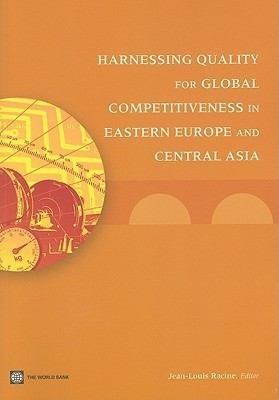Harnessing Quality for Global Competitiveness in Eastern Europe and Central Asia(English, Paperback, unknown)
Quick Overview
Product Price Comparison
Standards are everywhere, yet go mostly unnoticed. They define how products, processes, and people interact, assessing these entities' features and performance and signaling their level of quality and reliability. They can convey important benefits to trade, productivity, and technological progress and play an important role in the health and safety of individual consumers and the environment. Firms' ability to produce competitive products depends on the availability of adequate quality-support services. A "national quality infrastructure" denotes the chain of public and private services (standardization, metrology, inspection, testing, certification, and accreditation) needed to ascertain that products and services introduced in the marketplace meet defined requirements, whether demanded by authorities or by consumers. In much of Eastern Europe and Central Asia, national quality infrastructure systems are underdeveloped and not harmonized with those of their trading partners. This imbalance increases trade costs, hinders local firms' competitiveness, and weakens overall export performance. The objective of Harnessing Quality for Global Competitiveness in Eastern Europe and Central Asia is to highlight the need to reform and modernize the institutions in the region toward better quality and standards. The book ties in with much of the work done in the World Bank on the business environment, trade facilitation, economic diversification, and enterprise innovation. The countries in the region can improve this situation, revising mandatory standards, streamlining technical regulations, and harmonizing their national quality infrastructure with those of regional and international trade partners. Most governments will need to invest strategically in their national quality infrastructure, including pooling services with neighboring countries and stimulating local awareness and demand for quality. Specifically for the countries of the former Soviet Union, the restructuring process will need to improve governance, thus eliminating conflicts of interest and providing technically credible services to the economy.


